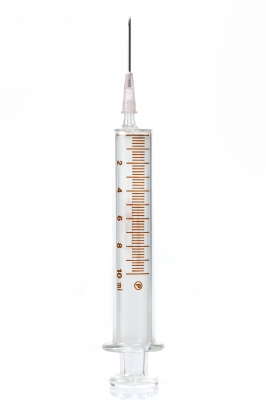
If you spend any time reading news on the Internet, you probably know the name David Kwiatkowski, the travelling health care technician who left a trail of hepatitis C infections behind him. Kwiatkowski was an injection drug user who helped himself to potent pain and anesthesia drugs meant for patients. He refilled the syringes with sterile saline. Not only did he put patients at risk for hepatitis C, he also put them at risk of insufficient pain relief or anesthesia.
No one knows how many people Kwiatkowski infected with hepatitis C, but the official estimates are 45 infections and one confirmed death. Kwiatkowski was sentenced to 39 years in prison.
This was not the first or the biggest hepatitis C medical-related outbreak in the U.S. Data compiled from 2008-2012 by the Centers for Disease Control and Prevention list 35 hepatitis B or C outbreaks; 100,000 exposures and 300 confirmed cases.
It is tragic on many levels, not just that it happened, which in and of itself is awful, but that these outbreaks are preventable. For decades, advocates for medical reform have been lobbying for safer injection procedures, better surveillance over controlled drugs, and improved protocols for more effective infection control.
Dr. Evelyn McKnight has been advocating for medical reform for more than a decade. McKnight contracted hepatitis C while being treated for breast cancer, because the Nebraska clinic where she received chemo reused medical equipment. McKnight transformed her own personal tragedy into a call to action, and founded HONOReform. One of HONOReform’s crusades is the One and Only Campaign - One Needle, One Syringe, Only One Time.
The part of this that really makes me sad is it makes it hard to trust the medical system when you hear stories like this. I know countless people who will not go to doctors because they don’t trust them. These patients would rather take their chances without medical care, than put themselves in to the hands of a provider that might make things worse. Although everyone has that right, no one should have to make this choice because of this failure.
The news and uncertainty about the Affordable Care Act may be feeding our fears. However, here is the thing about fear--it is mostly based on what-ifs. What if I can’t get a doctor? What if my doctor gives bad advice? What if I can’t get prescription coverage for the new hepatitis C drugs? These things may pan out to be true, but they may also be false.
Here is my suggested list of what-ifs:
- What if I add in 5 more minutes of physical activity every day?
- What if I stop eating sugar one day a week?
- What if I go to bed earlier every night for a week?
- What if I ask my friends if they have a doctor they like, and see if that doctor is taking new patients?
- What if I skip the news one day a week?
- What if I advocate for better health practices, such as those proposed by the One and Only Campaign?
- What if I start living my life bravely?







1 Comment
1 Comment